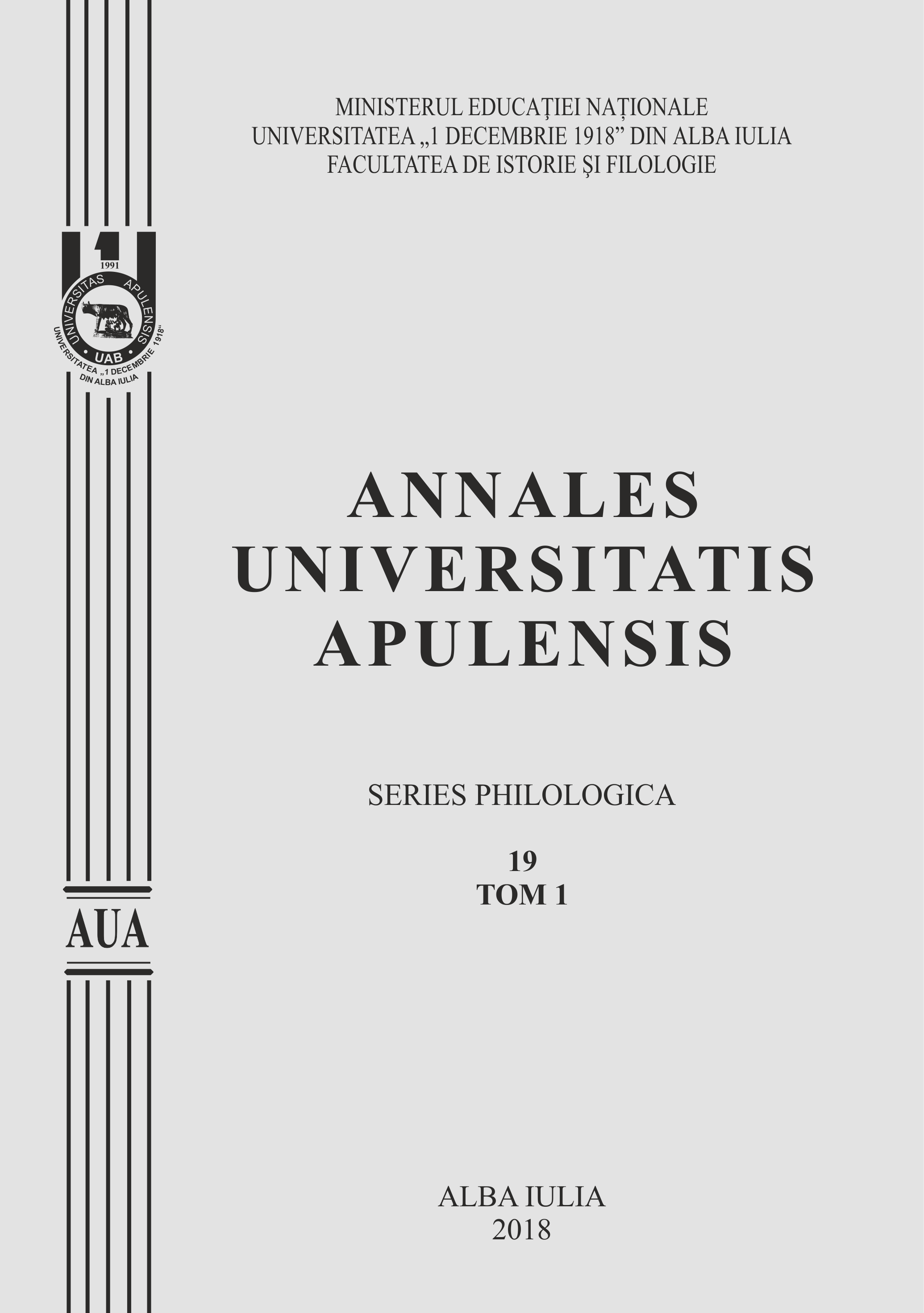INFLUENȚE CULTURALE ÎN ANTROPONIMIA COMUNEI OCNA ȘUGATAG, JUD. MARAMUREȘ
CULTURAL INFLUENCES IN THE ANTHROPONYMY OF OCNA ŞUGATAG COMMUNE, MARAMUREŞ COUNTY
Author(s): Adelina Emilia MihaliSubject(s): Language and Literature Studies, Philology
Published by: Universitatea »1 Decembrie 1918« Alba Iulia
Keywords: anthroponym; first name; Hungarian; Jewish; Romanian; influences;
Summary/Abstract: This paper aims at illustrating the dynamic of anthroponyms in the author’s home commune, Ocna Șugatag, Maramureș county, by comparatively looking at the period of the Hungarian occupation and the Great Union (1907–1927) and the post-communist period (1990–2017). The names were taken from birth registers of all the four villages making up the commune. Ocna Șugatag commune, consisting of the villages Ocna Șugatag (the main village), Breb, Hoteni and Șugatag Village, is renowned for the saltwater lakes formed after the roadways of the salt mines (closed in 1950) caved in. While the salt mines were still running, the settlement of Ocna Șugatag was multi-ethnic as the workers came from everywhere in Romania and Europe for salt exploitation, and this aspect was reflected by the anthroponymy of newborns. Between 1907 and 1927, except for a few cases, names were Magyarised in agreement with the policy of the Hungarian administration. In the 2000s, modern, foreign names appeared as a result of the massive migration to Italy, France, Spain and Great Britain, as well as the influence of the mass media. The analysis of the anthroponyms in question highlights a certain anthroponymic pattern for every time period considered and the criteria underlying name choices. The frequency of Romanian first names is different in the two historical periods, whereas calendar names are constant in the anthroponymy of the area under investigation, although only as second first names. At the same time, in 1907–1927 the number of double or triple first names is relatively small, as such names occurred especially in Hungarian and Jewish families, whereas after 1990 double first names were regular regardless of bearers’ ethnicity.
Journal: Annales Universitatis Apulensis. Series Philologica
- Issue Year: 19/2018
- Issue No: 1
- Page Range: 183-193
- Page Count: 11
- Language: Romanian

